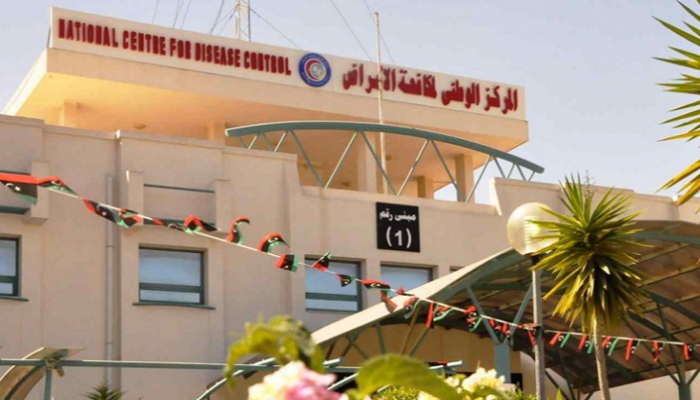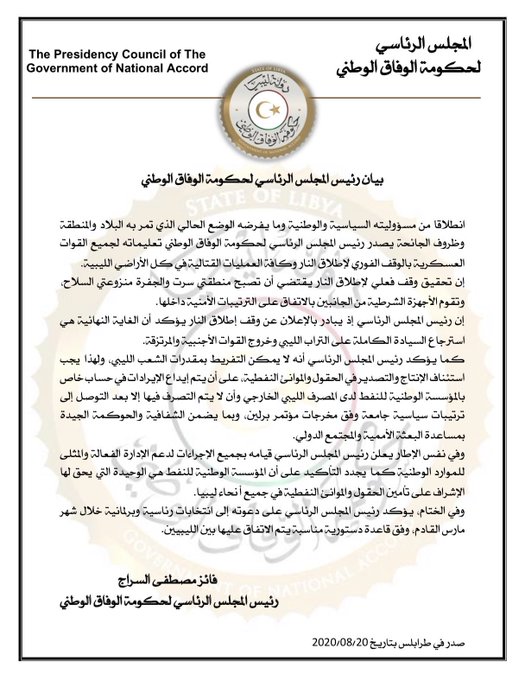In a new initiative to end the Libyan conflict, the Chairman of the Presidential Council, Fayez Al-Sarraj, has given orders for the Libyan army forces under the Government of National Accord to implement an immediate ceasefire and end all the hostilities in Libya.
According to Al-Sarraj, the immediate ceasefire would mean demilitarizing the city of Sirte and Jufra region while police forces of both sides to the conflict set up the security arrangements to secure both areas, adding that the final goal of the ceasefire is to restore full sovereignty over the Libyan soil and expel foreign forces and mercenaries
He stressed the importance of resuming production and exports at the oil fields and ports, “provided that the revenues are deposited in a special account for the National Oil Corporation at the Libyan Foreign Bank and that they are not disposed of until after reaching comprehensive political arrangements, in accordance with the outcomes of the Berlin Conference, in a manner that guarantees transparency and good governance and with the help of the UN mission and the international community.”
He has also confirmed its call for presidential and parliamentary elections in March.
In the same context, the head of the Libyan House of Representatives, Aguila Saleh, called for the city of Sirte to be a temporary headquarters for the new Presidential Council, “which would bring together all Libyans and unite them.”
In a statement on Friday, Saleh called on “everyone to immediately cease fire and all combat operations throughout the country.”
He called for an official security police force from Libya’s various regions to secure Sirte, “in preparation for the unification of state institutions as a basic consensual stage of construction, provided that the military arrangements are completed in accordance with the 5+5 negotiating path under the auspices of the UN mission and whose conclusions are committed upon agreement and official announcement.”
“The ceasefire cuts the way to any foreign military interventions and ends with the expulsion of mercenaries and the dismantling of militias, in order to achieve the restoration of full national sovereignty,” Saleh added.
“The production and export of oil should resume and its revenues should be frozen in the account of the Libyan Foreign Bank, and should not be used until after reaching a political settlement in accordance with the conclusions of the Berlin Conference and the Cairo Declaration, and with the guarantee of the UN mission, the US administration, and the countries that support peace and stability in Libya, in order to achieve justice and transparency,” he continued.
For its part, the United Nations Support Mission in Libya welcomed the cease-fire agreement in Libya, activating political process.




